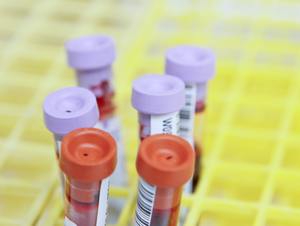Do you have any thoughts on why there are so many varying opinions on what lab values actually confirm a diagnosis? For example many very well respected experienced surgeons and endocrinologists correct calcium for albumin even when it’s not low. This can bring a high calcium down to normal or even low and possibly miss a diagnosis.


It’s a great question. It seems like we should all be able to agree on which lab values are normal. Unfortunately this is not the case, and there are a few reasons.
First, when the lab gives the results, it gives a “normal range” - but this is looking at all humans in aggregate. A normal human can have a calcium of 10.5 mg/dl when she is 20 years old, but should not have that when she is 80. The lab result does not distinguish between 20 year olds and 80s year olds, so 10.5 is classified as normal.
Regarding albumin correction: I think the reason that most doctors “correct” a high calcium is that they are just not aware that this is not a valid practice. It is appropriate to use albumin levels to correct calcium in certain circumstances, but most doctors don’t remember what those are, and just do it for everyone. Here is why we do an albumin correction: the calcium level in your blood exists primarily in 2 forms: bound to protein (albumin) and free, ionized calcium. The ionized calcium is the “active” form - that’s the form your body wants to keep well-regulated. But we tend to measure total calcium, which includes the amount of calcium bound to albumin as well as the ionized calcium. People who are very sick, generally in the ICU, tend to have low albumin levels. It’s a sign of chronic illness. Since a lot of calcium in the blood is bound up with albumin, if you have a very low albumin level, your total calcium level will look very low - even if the amount of ionized calcium (the usable form that is not bound to albumin) is normal. For people with very low albumin levels, then, we will “correct” the total calcium level - bump up our estimated level - to correct for that. Note that we do not need to correct for ionized calcium, since it is not influenced by albumin levels.
The equation we use to “correct” calcium is not exact, and is more of an estimate. To make sure we aren’t overcorrecting, the formula uses the lowest end of normal for the albumin, and corrects for each unit BELOW that lower end. So for example, if the lowest end of albumin is 4, and your albumin level is 3, then I will ADD 0.8 to your calcium level in mg/dl to get the albumin-corrected total calcium. So if your total calcium is measured as 8.7 mg/dl (which is low), your albumin-corrected calcium will be 8.7 + 0.8 = 9.5 mg/dl (which is normal). From this we can see that the reason you have a “low” calcium level is because your albumin is low - but your ionized calcium level is likely normal.
But what about if the albumin is on the higher end of normal? For example, what if the albumin is 5 - which is perfectly normal. If using the equation in which an albumin level of 4 is the set point, then we will need to SUBTRACT 0.8 mg/dl from the total calcium level for each unit of albumin above 4. This is incorrect! Any albumin in normal range will give an accurate calcium result. If we wanted to make an equation to correct for high albumin, we would need to use the high end of normal: 5.5. Very high albumin levels are rare, so we would rarely need to use this correction. Studies support this: albumin correction for “high albumin” has been shown to be inaccurate.
Albumin correction should only be used when the albumin is very low. Sometimes the lab will automatically do it - but it is valid only if the albumin is low. The correction formula doesn’t work for normal or high-normal albumin levels, and should not be used.



